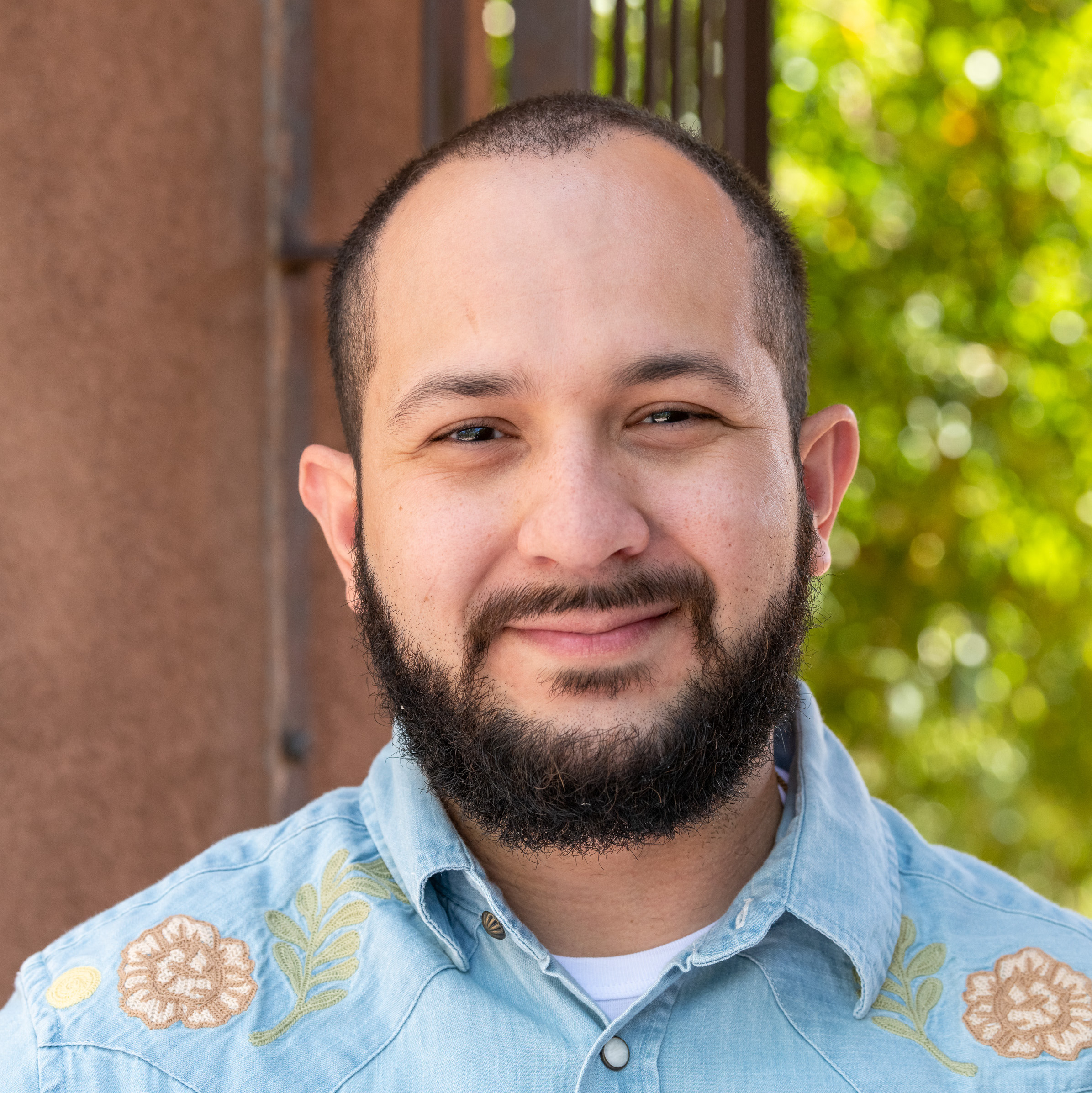February, 2022
Monday, February 07, 2022 | 02:00 pm

Soil, Struggle and Justice: Agroecology in the Brazilian Landless Movement Film Screening & Discussion
Andreas Hernandez , UNM Sustainability Studies
This film examines a cooperative of the Brazilian Landless Movement (MST) in the South of Brazil, which struggled for access to land and then transitioned to ecological agriculture, or agroecology. This MST cooperative is demonstrating the possibility of an alternative model of flourishing rural life, which provides thriving livelihoods for farmers, produces high quality and low cost food for the region, and rehabilitates the earth.
Tuesday, February 15, 2022 | 02:30 pm

Forming La Opinión in Los Angeles: Ignacio Lozano, Mexicanidad, and Diasporic Nationalism, 1926-1940
Andy Rafael Aguilera
In October 1934, Ignacio Lozano Sr., newspaper mogul of Los Angeles’s La Opinión and San Antonio’s La Prensa, received an urgent telegram that his papers had been prohibited from crossing the Mexican border. That same day, his correspondent from Mexico City, José C. Valdés, confirmed to Lozano that his papers had had been marked as “seditious propaganda” by the Mexican government. Lozano subsequently denied these claims and pointed to Mexico’s guarantee of free press. In contrast to northward movement of Mexican people, resources, and ideas, the prohibition of Lozano’s newspapers represented a unique case on the U.S.-Mexico borderlands. This talk focuses on the formation of La Opinión in its first decade in which it utilized democratic rhetoric that emphasized the ideals of free press and electoral participation for Mexicans on both sides of the border. Lozano’s papers represented a transnational Mexican citizenship which relied on warning readers on the dangers of the Mexican government that spawned from the Mexican Revolution. La Opinión ultimately functioned as a crucial borderlands newspaper for ethnic Mexicans across the U.S. Southwest. The long Mexican Revolution thus contributed to the establishment of two seminal Mexican borderlands newspapers, and its efforts to keep the bonds of mexicanidad linked to the homeland from afar.
Wednesday, February 23, 2022 | 03:00 pm

Immigration & Asylum
Dr. Kimberly Gauderman joined the History Department in 1998 and served as the Departmental Undergraduate Advisor for nine years (2009-20018). She served as Director of the UNM Latin American Studies Program for three years (2005-2008) and is currently a Faculty Affiliate of the UNM School of Law. She teaches a variety of courses focusing on early and modern Latin American history. Reflective of her research interests and her concern for social justice and human rights, she focuses on the construction of institutional authority in the early modern and modern periods in Iberia and Latin America and the creation of racial categories, gender norms, and sexual identities. She offers courses on early Mexico (including Central America), early South America, modern Central America and the Andean nations that include such themes as indigenous peoples, women, gender and sexuality, environment, human rights, gangs and criminal organizations, and governmental regimes and political corruption.
In-person in the Luminaria Room (SUB 3rd Floor--room capacity of 10)
or virtual
Zoom Meeting ID: 956 8592 7614
Passcode: PNMGC
Thursday, February 24, 2022 | 04:30 pm

Incorporating Global and Latin American Sounds into the Classroom
The first part of this workshop will feature a special presentation - "Living and Learning through Sound: Developing a Sonic Epistemology". Drawing from her recent fieldwork in Costa Rica, Dr. Ana Alonso Minutti will address ways in which artists and scientists associated with the Universidad de Costa Rica, in conjunction with local activists, have developed the workbook ¡Escuchá conmigo! (2021), an invitation for kids and young adults to engage in an exercise of listening through the body to connect with nature. Having grown up in Mexico, she will address a similar project developed in her home country, Suena Mexico (2016), an illustrated book that tells a story using the yells and calls of street public services (el gas, la basura, tamales, etc.). Taking these two book projects as case examples, she will propose ways in which teachers and students can think through sound and engage in creative exercises to promote human and nonhuman connections.
An active hiker, Ana will introduce the practice of soundwalking as yet another way of developing a sonic epistemology. By sharing her recent experience walking over 80 kms of El Camino de Santiago (Spain), she will propose doing soundwalks to create harmony between body, mind, and soul by listening through walking. Lastly, drawing from her time living in Albuquerque for the past eight years, Ana will address the ways in which the unique New Mexican soundscape has been a catalyst for her research, teaching, and composing.
Ana Alonso Minutti is a music scholar, pedagogue, writer, and occasional composer based in Albuquerque, NM. She is passionate about listening, learning, loving, and living. Currently, she’s spending her sabbatical in Spanish-speaking lands, as she had missed thinking and speaking solely in her native language.
Following Ana's presentation, participants will further explore how to incorporate sound into their classroom teaching. What does the world sound like? What does Latin America sound like? How is sound a form of resistance and sovereignty? Listen to soundscapes from around Latin America and Iberia, participate in an "ear opening" activity using South American sounds, and learn what resources are available to help you incorporate sound - including music, oral history, and podcasts - into your classroom. The resources provided are applicable across grade levels, languages, and subject areas. An educator book guide on "Hungry Listening" will also be provided and discussed.
Explore, listen, and open your ears in this hands-on virtual workshop.
Friday, February 25, 2022 | 03:00 pm

A Black Feminist Toolkit: Mobilization and Cohesion in Emergent Race-based Social Movements
Dr. Prisca Gayles , University of Nevada, Reno
Social movements scholars have considered the role of individual and collective emotions in mobilization and cohesion but have not engaged with racialized emotions in this literature. In this presentation, Prisca Gayles examines Black women’s increased participation in Argentina’s black and feminist social movements, as evidenced by their visibility at recent major protest events. Gayles investigates why Black women’s membership is growing faster than in previous years, and how movement participants utilize transnational black feminisms to empower new members. Drawing on twenty-two months of ethnographic fieldwork, Gayles examines how negative and positive emotional bonds function as tools of mobilization in race-based social movements. Gayles argues that Black women activists equip their constituency with a “black feminist toolkit,” giving them skills to process and confront the otherwise crippling forms of quotidian and institutional racism they suffer through. Their findings show why and how affective processes of mobilization are critical to Black women’s activism in Argentina.
